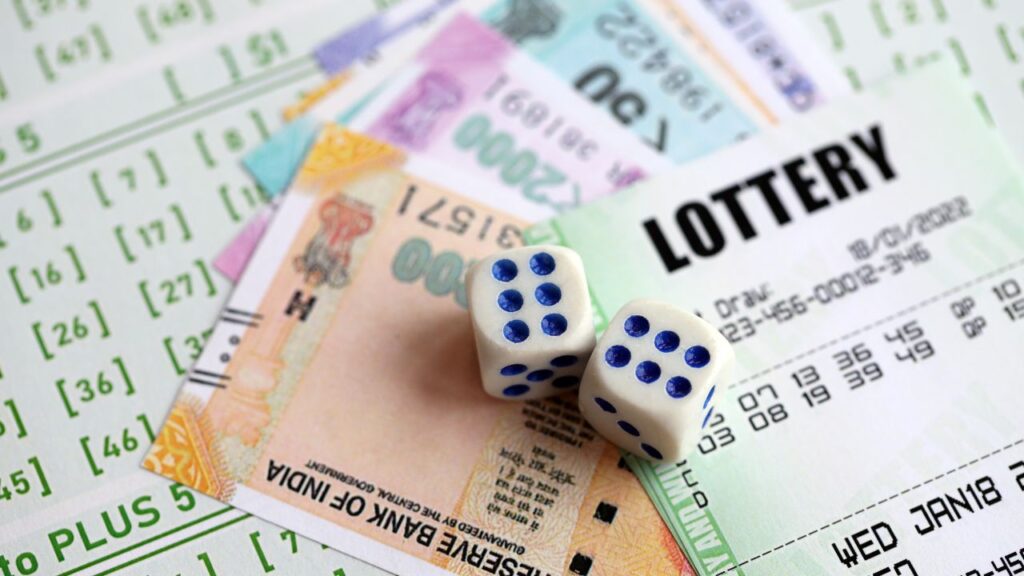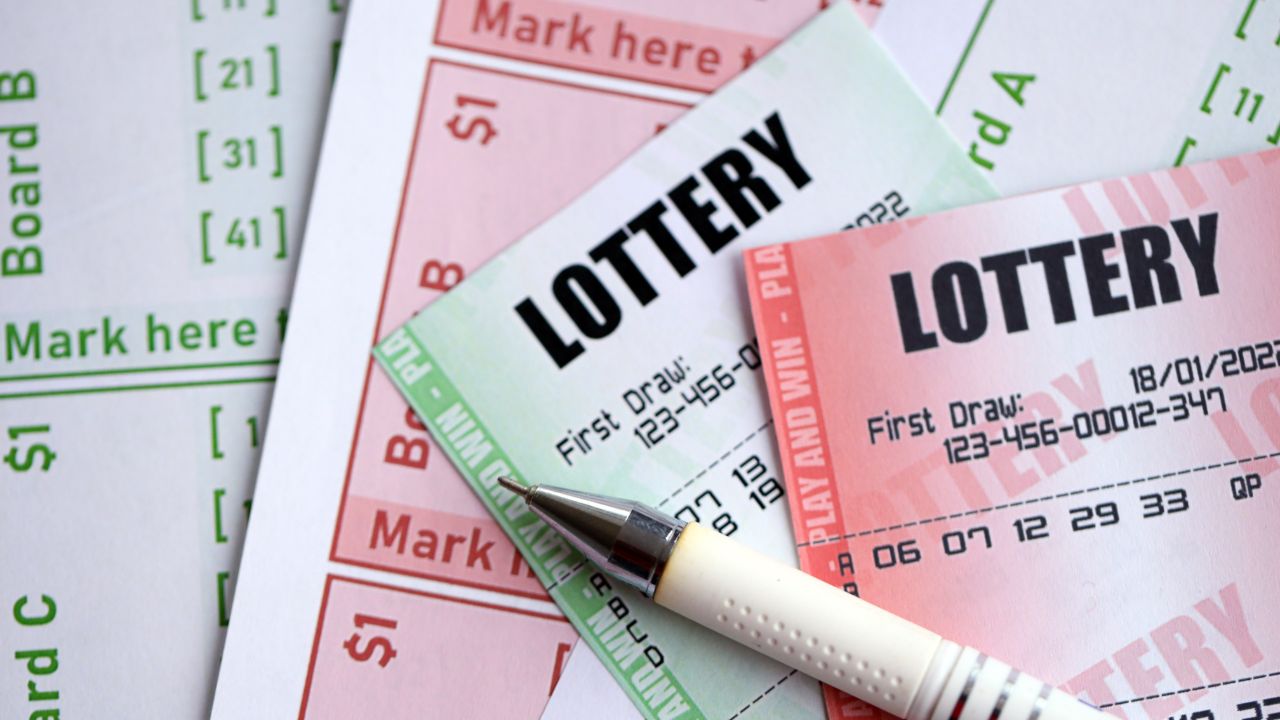Winning the lottery sounds like a dream—until your name goes public and strangers start knocking! In today’s digital world, anonymity is power, and keeping your identity private after a big jackpot win is more important than ever. Some U.S. states let you remain anonymous, others don’t. And for those that don’t? Don’t worry—there are still clever ways to protect yourself with legal tools like blind trusts, lottery pools, or LLCs.
In this complete guide, we’ll break down state-by-state rules, insider legal options, and best practices so you can claim lottery winnings anonymously without sacrificing your safety, privacy, or sanity. 💰 Let’s dive in.
🎯 Ready to boost your odds? Explore the best lottery prediction software and make smarter picks today!
Why Anonymity Matters for Lottery Winners
Winning the lottery might seem like a dream, but for many, going public quickly turns it into a nightmare. As soon as your name is released, expect a flood of attention—some of it unwelcome. Lottery winners have been targeted by scammers, harassed by distant “relatives,” and even sued over frivolous claims. With millions at stake, strangers and even acquaintances may feel entitled to your windfall.
Several high-profile winners have openly regretted going public. From privacy invasions to personal security threats, their stories reveal just how overwhelming sudden fame can become. The media frenzy alone can lead to immense stress, while social media only amplifies exposure.
Beyond safety, anonymity also protects your financial freedom. Remaining unidentified can help you quietly consult legal advisors, secure your assets, and make thoughtful decisions. Simply put, keeping your name out of the headlines gives you the power to move smart—and safe—after a life-changing win.
🎟️ Looking to improve your lottery game? Try the proven system behind Lotto Champ and see what smart number-picking looks like.
Which U.S. States Allow Lottery Winners to Remain Anonymous?

Whether you can claim your prize privately depends entirely on the state where you purchased the winning ticket. As of 2025, some U.S. states fully protect winner identities, while others offer only partial or temporary anonymity—and some don’t allow it at all.
Full anonymity states like Delaware, South Carolina, Texas, North Dakota, and Kansas allow jackpot winners to remain completely unnamed. These states recognize the serious security and privacy risks involved with public disclosure.
Meanwhile, conditional anonymity states—such as Florida, Georgia, and Virginia—permit anonymity only for prizes above a certain threshold (often $250,000 or more). Other states offer temporary confidentiality, allowing winners to prepare before their names become public.
To help you quickly compare, here’s a summary table showing which states allow anonymity, partially allow it, or mandate full disclosure (updated for 2025). Knowing your state’s stance is crucial before you step forward to claim your prize—and can even influence where you buy your ticket.
📊 Boost your odds with the power of AI. Discover how this Lotto Champ system analyzes past draws to help you pick better numbers.
States That Prohibit Anonymity — What You Can Still Do
In some U.S. states, lottery winners must be publicly identified by law. These “disclosure-required” states include California, Wisconsin, New York, Arkansas, and others where transparency is seen as a way to ensure public trust in the lottery system.
In these states, your name, city of residence, and prize amount are typically subject to public record laws. Some lotteries also publicize your photo, though this varies by agency policy rather than legal mandate.
However, there are still protective actions you can take:
- Establishing a legal entity (like a trust or LLC) to claim the prize can sometimes provide partial privacy.
- Limiting interviews and media interaction can help reduce attention.
- Working with a legal team experienced in lottery claims may minimize exposure.
For example, in California, winners’ names and prize details are automatically published, as seen in the 2022 case of a Powerball winner who was hounded by media and opportunists within days of claiming. Understanding your state’s disclosure rules is the first step to planning a safer claim.
💡 Want a smarter way to play? Check out Lotto Champ software and explore strategic number prediction backed by data.
Legal Tools to Claim Lottery Anonymously in Restricted States

Even if you live in a state that doesn’t allow lottery winners to remain anonymous, there are legal strategies that can help protect your identity and assets. While they won’t guarantee complete secrecy, they can offer a valuable buffer against unwanted attention.
- Blind Trusts: In some states, you can set up a blind or irrevocable trust to claim your winnings. The trustee (not you) appears on public records, shielding your name. However, this approach can be complex and must be done before claiming the prize.
- LLCs or Legal Entities: Forming an LLC and designating it as the winner can mask your personal identity—if your state allows entity claims. This route requires careful legal structuring and may still disclose members in public records.
- Lottery Pools or Syndicates: Claiming as part of a group can diffuse attention, as focus is split among several winners. Just be sure you have a formal agreement in place.
- Using a Lawyer or Financial Advisor as a Proxy: Some winners hire professionals to collect the prize on their behalf, minimizing exposure during the claims process.
Each method has its own legal and financial implications, so it’s vital to work with a team of professionals to ensure you’re protected while staying compliant with state laws.
🧠 Tired of guessing? Let Lotto Champ’s algorithm do the thinking for you and bring structure to your lottery strategy.
How to Set Up a Trust or LLC Before Claiming
If you want to protect your identity after winning the lottery—especially in states that don’t allow full anonymity—forming a trust or LLC ahead of time is a strategic move. Here’s how to get started:
- Step-by-Step Guide to Forming a Trust
Begin by consulting with a qualified estate attorney. You’ll need to:- Choose the type (revocable or irrevocable trust)
- Draft a trust agreement tailored to claiming lottery winnings
- Obtain an Employer Identification Number (EIN) from the IRS
- Open a bank account in the trust’s name
- Naming Strategies to Avoid Exposure
Use a non-identifiable, generic name like “Golden Future Trust” or “Peace of Mind Trust” to avoid drawing attention or linking the trust back to you. - Choosing a Trustee
Your trustee will be the public-facing figure for the prize. Choose wisely—most use a trusted attorney, CPA, or close relative with financial acumen. - Costs, Timelines, and Documentation
Expect to spend $2,000–$5,000 on legal setup fees. Allow at least 1–2 weeks for formation, especially if a large prize is on the line. Documentation must be ready before you contact the lottery office. - Legal and Tax Implications
Trusts and LLCs can help with estate planning, liability protection, and asset distribution, but they may also create tax complexities. Always consult a tax advisor before proceeding.
Setting up these structures early puts you in control of your privacy—before the spotlight hits.
🚀 Join thousands of players leveling up with the Lotto Champ platform—where smart prediction meets simplicity.
Recent State Law Changes and Trends (2023–2025)

The trend toward winner privacy accelerated significantly between 2023 and 2025, as growing awareness of the dangers of public exposure prompted several states to update their lottery anonymity laws.
🔹 Oregon (2025)
Oregon was one of the last holdouts but changed course with House Bill 3115. Signed in May 2025 by Governor Tina Kotek, the law allows lottery winners of any prize amount to remain anonymous unless they explicitly consent to disclosure. The bill also cracked down on secondary ticket sales to prevent fraud and ticket reselling schemes FastDemocracy+15Lottery Post+15Lottery USA+15.
🔹 Virginia (2025)
Virginia lowered its anonymity threshold from $10 million to $1 million via HB 1799, effective July 1, 2025. Winners of $1 million or more can now stay anonymous, and their information is exempt from Freedom of Information Act requests Lottery Daily+3Lottery Post+3WYDaily+3.
🔹 Michigan (pending 2025)
Michigan’s legislature passed a bill in April 2025 allowing anonymity for multi‑state game winners. The proposal is currently under Senate review and, if approved, would extend privacy protections to Powerball and Mega Millions winners Lottery USA+8
Broader Trends in Winner Privacy
- More States Joining the Privacy Movement
Since 2019, 23 jurisdictions now offer some form of anonymity—up from 8 just a few years ago Casino.org+4Lottery USA+4Lottery Geeks+4. - Public Support vs. Transparency Debates
Advocates argue that anonymity protects winners from harassment, scams, and undue public pressure. Critics worry transparency is vital for public trust and fraud prevention BillTrack50+11Lottery USA+11Lottery USA+11. - Politics and Public Opinion as Drivers
Lawmakers in states like Virginia and Oregon emphasized safety and consent over forced openness. Meanwhile, proposals in states like North Carolina and Michigan reflect growing responsiveness to constituent concerns about privacy.
Overall, the shift reflects a cultural change: many legislators now view winner anonymity not as hiding wrongdoing, but as safeguarding individuals in an era of heightened digital risk.
✅ Ready to test a top-tier lottery tool? Start today with Lotto Champ’s official program and make every ticket count.
🧠 Expert Tips for Staying Anonymous After Winning
Even if your state allows anonymity or you’re using a trust or LLC, protecting your identity takes more than just legal paperwork. These expert strategies can help you safeguard your privacy, safety, and sanity after a big win.
- Hold the Pen: Don’t Sign the Ticket Yet
While it’s instinctive to sign a winning ticket immediately, doing so in your personal name may eliminate anonymity options later. Instead, secure the ticket in a safe place and consult a lottery attorney first to explore claiming via a trust or LLC. - Scrub Your Digital Footprint
Reduce online exposure by deleting or privatizing social media accounts, removing address info from people-finder sites, and asking data brokers to remove your details. Services like DeleteMe or OneRep can help automate this process. - Be Strategic with Communication
Decide in advance how you’ll handle inquiries from relatives, coworkers, or media. Consider hiring a spokesperson or publicist if needed, and avoid sharing the news widely—even among trusted friends—until a plan is in place. - Avoid Oversharing
Resist the urge to celebrate publicly, even subtly. Casual posts, luxury purchases, or sudden lifestyle changes can draw attention fast. Stay under the radar as much as possible. - Invest in Security Upgrades
Enhance physical security with home surveillance, privacy fencing, and alarm systems. Lock down your digital life with two-factor authentication, secure financial accounts, and a burner phone number for anonymous communication.
Taking these precautions may seem extreme, but for multimillion-dollar winners, privacy is protection. The less people know, the safer—and calmer—your post-win life will be.
🔍 Find out why Lotto Champ is trusted by serious players who want more than just random picks.
🧾 Claiming Anonymously in Multi-State Games like Powerball & Mega Millions
Winning a jackpot in national games like Powerball or Mega Millions raises extra questions about anonymity—especially because these are multi-state games governed by both collective agreements and individual state laws. Here’s what you need to know:
- Where You Bought the Ticket Matters Most
In multi-state games, your claim is processed according to the laws of the state where the ticket was purchased—not where you reside. This means your ability to remain anonymous depends on the ticket’s purchase location. - Each State Has Its Own Rules, Even in Shared Lotteries
Although Powerball and Mega Millions are operated by the Multi-State Lottery Association, each participating state retains control over winner disclosure laws. That’s why some states release names publicly, while others allow full or partial anonymity. - What Multi-State Games Say About Privacy
These games defer to state regulations for anonymity. Powerball and Mega Millions themselves don’t offer blanket privacy policies—it’s up to each state to decide how winners are treated in the media and public records. - Case Examples from Around the U.S.
- A South Carolina Powerball winner claimed a $1.5 billion prize anonymously thanks to the state’s privacy laws.
- In contrast, California publicly announced a $2.04 billion Powerball winner due to state disclosure requirements.
- Texas, a full-anonymity state, allowed a Mega Millions winner to remain unnamed while still promoting the jackpot locally.
Navigating the intersection of multi-state lottery rules and state-specific privacy laws is key to protecting your identity. Where you buy matters—and planning ahead makes all the difference.
🎯 Say goodbye to blind luck. Tap into Lotto Champ’s predictive tools and start playing with intention.
Conclusion
Claiming a lottery jackpot is thrilling—but protecting your identity is crucial. Whether you live in a state that allows anonymity or not, you have options. From legal entities to strategic timing, staying anonymous is possible with the right plan and support. Always consult a lottery attorney or advisor before claiming. Your future self will thank you!
🔍 Don’t leave your numbers to chance — find the top-rated lottery prediction tools here and play with confidence.

